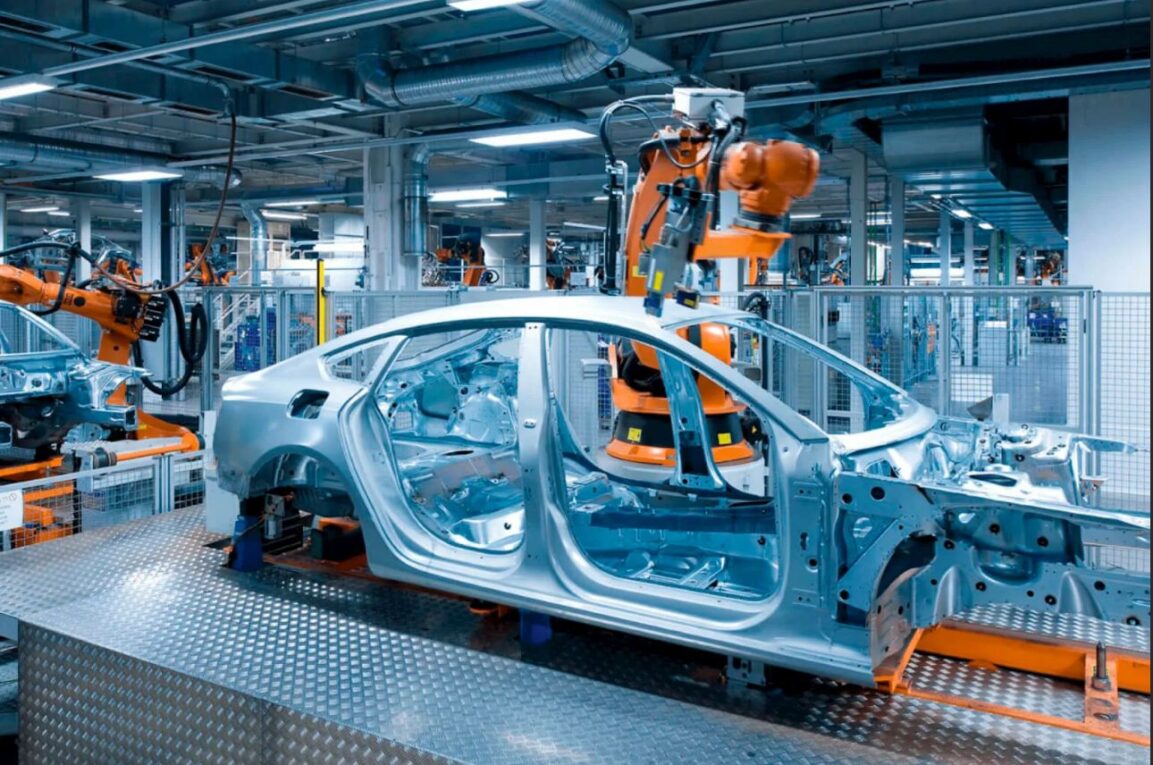The UK’s automotive industry is at risk of being left behind in the global electric vehicle (EV) revolution, according to a report by Aston University’s Centre for Business Prosperity. The report highlights the urgent need for policy intervention to ensure the sector remains a critical pillar of the British economy.
The study, titled “Powering the Future: Aligning Economic Policy for Automotive Sector Resilience in the face of Critical Material Challenges,” analyzes the UK’s EV industry and reveals its vulnerability. Researchers Professor Jun Du and Dr. Oleksandr Shepotylo warn that the UK is ill-prepared to capitalize on the opportunities presented by the rapidly advancing EV market.
One major concern identified in the report is the UK’s heavy reliance on battery imports, with imports exceeding exports by 10.5 times. In contrast, Germany leads the global market in terms of the value of EV exports, while China leads in terms of the number of EVs exported. The report stresses that the pace of change in the global EV market means policymakers must act swiftly to avoid falling behind.
The UK’s departure from the EU further complicates matters, particularly in navigating non-tariff measures and rules of origin that affect EV exports. With increasing global competition in the EV industry, the need for agile and responsive economic policies becomes evident.
However, the report also highlights some advantages for the UK, including a diversified export portfolio and a modest reliance on global value chains (GVCs). The UK’s position in these areas can be leveraged to its advantage, but attention must be paid to potential short-term concerns in the EV battery supply chains that could lead to medium-term dependencies on battery materials and production.
To fortify the UK’s presence in the global EV market, the report proposes a four-point plan for automotive sector resilience. The plan includes strategically targeting global EV opportunities, optimizing trade policy, making strategic investments in EV battery production, crafting a future-ready industrial strategy, and continuously monitoring global value chains.
Failure to address these issues could lead to the UK remaining critically dependent on battery imports, while its competitors reduce their risk. Professor Jun Du emphasizes the importance of aligning policy ideas with the dynamics of the EV market to cultivate a resilient and competitive UK automotive industry. Implementing the recommended interventions can solidify the UK’s leadership position in the electric mobility sector, ensuring sustainable growth, competitiveness, and innovation.
Dr. Oleksandr Shepotylo also points out the level of government intervention in the EU, US, and China, where coherent industrial strategies capitalize on the shift to Net Zero. The report warns that the UK, in contrast, favors a reactive approach and highlights the need for a more proactive stance, such as a comprehensive industrial strategy aligned with the government’s Net Zero goals.
In conclusion, the report underscores the vulnerability of the UK’s automotive industry in the face of the EV revolution. Urgent policy intervention is required to address challenges and ensure the sector remains competitive. By embracing the recommendations outlined in the report, the UK can fortify its position in the global EV market and drive sustainable growth and innovation.

